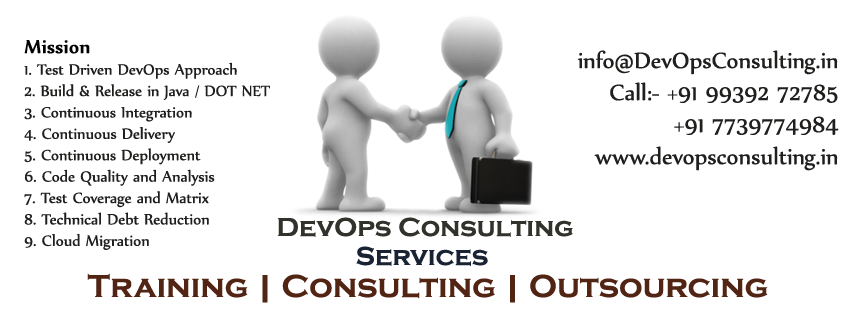DevOps Classroom Training | DevOps Workshop | DevOps Events | Bangalore
DevOps integrates developers and operation teams in order to improve collaboration and productivity by automation infrastructure, automating workflows and continuously application performance. DevOps helps you deliver the best user experience possible and benefits your company by increasing the frequency of deployments of your software and services. DevOps helps to improve performance and quickly release of application. As rapid delivery of software has become a strategic business asset, progressive IT organizations are pursuing a DevOps culture, where development and operations teams, systems, and tools work in lockstep. By aligning goals and sharing tools and strategies, you can improve velocity and code quality, allowing you to innovate faster.
Why to Learn DevOps?
Technical benefits: Continuous software delivery
Technical benefits: Less complex problems to fix
Technical benefits: Faster resolution of problems
Business benefits: Faster delivery of features
Business benefits: More stable operating environments
Business benefits: More time available to add value (rather than fix/maintain)
In this course, we look at the necessity of Devops and how a DevOps transformation can help focus on value and streamlined delivery of your software. We will also cover concepts like Automation, tools & technology which play huge roles in DevOps success;
We are going to organise a DevOps Workshop in Bangalore, read below for the details:
Tools Covered - DevOps using Docker, Git, Maven, Nexus, Jenkins & Chef on AWS platform
Number of Days - 3 Days
Time - 10:00 AM to 6:00 PM
Location - Bangalore
Mode - Classroom
Early Bird Fees - INR 20000 / Candidate
Late Bird Fees - Last 7 Days Registration - INR 25000 / Candidate
For more info contact us
Email:- info@scmGalaxy.com
Call:- +91- 773 977 4984 / +91- 993 927 2785







